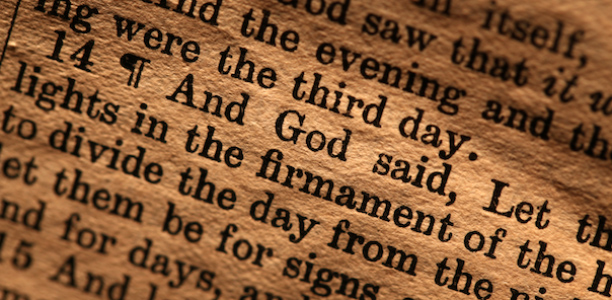By David Faust
 Of all the blessings we take for granted, what is greater than the privilege of talking with God?
Of all the blessings we take for granted, what is greater than the privilege of talking with God?
Can you imagine a world without prayer? What if our Father refused to be available? What if God made himself unapproachable—unwilling to listen? Can you imagine a Bible stripped of all the verses about talking with God? No Lord’s Prayer in the Gospels. No prayer meetings in the book of Acts. No encouragement to pray without ceasing. No invitation to approach the throne of grace and cast our cares on the Lord.
What would it be like if we couldn’t pray?
Prayerless—and Powerless
Without prayer, how would we seek God’s assistance? Suffering in Egypt, “The Israelites groaned in their slavery and cried out, and their cry for help because of their slavery went up to God” (Exodus 2:23). These weren’t fancy, formal prayers; they were weary groans—desperate cries for help—and the Hebrews’ heartfelt pleas didn’t fall on deaf ears. “God heard their groaning and he remembered his covenant with Abraham, with Isaac and with Jacob. So God looked on the Israelites and was concerned about them” (vv. 24, 25).
By ourselves we are inadequate, but through prayer we tap into the boundless capacity of God. Through prayer Solomon found wisdom to lead a nation. Nehemiah and Esther found courage to request the favor of kings. On his knees Daniel found fortitude to stand for his convictions. Peter and Paul found boldness to preach before hostile crowds. Prayer gives strength to the weary, hope to the grief-stricken, and relief to the persecuted.
Compelled to Pray
You don’t have to be a spiritual giant to pray effectively. In Egypt the Israelites didn’t take a seminary course in prayer; circumstances drove them to pray. Under extreme pressure they instinctively cried out to God.
Suffering compels me to pray. What the Hebrew people experienced collectively, the psalmist David experienced individually. He cried, “Save me, O God, for the waters have come up to my neck. I sink in the miry depths, where there is no foothold. I have come into the deep waters; the floods engulf me” (Psalm 69:1, 2). At times all of us feel like we’re drowning. Prayer reminds us that the Lord is our lifeguard, willing to dive in and save us.
Loneliness makes me pray. Without prayer, where could I turn when human friends are nowhere to be found?
Parenthood compels me to pray. I can’t imagine what it would be like if I couldn’t call on the Lord to assist my children and grandchildren.
Leadership obliges me to pray. Moses asked, “Who am I that I should go to Pharaoh and bring the Israelites out of Egypt?” (Exodus 3:11). Good question! Like Moses, I need to discover that who I am isn’t the point. The “i am” (who God is)—he’s the point. Moses’ mountainous responsibilities make mine look like molehills. Whether the path leads through painful plagues or parted waters, Moses couldn’t lead alone, nor can I.
My conscience calls me to pray. Where else but at the feet of Jesus can I find divine forgiveness when I have done wrong?
Gratitude makes me pray. Without prayer, whom shall we thank when we feel the impulse to rejoice and to worship when our hearts overflow with praise?
Tennyson was right: “More things are wrought by prayer than this world dreams of.” Why would we ever neglect the privilege?
Consider:
1. Does prayer come naturally for you? Why or why not?
2. What part of your prayer life needs improvement?
David Faust serves as the Associate Minister at East 91st Street Christian Church in Indianapolis, Indiana.
The Lookout’s Bible Reading Plan for February 1, 2015
Use this guide to read through the Bible in 12 months. Follow David Faust’s comments on the highlighted text in every issue of The Lookout.
Matthew 10:1-20
Acts 15:1-21
Psalm 23
Genesis 50
Matthew 10:21-42
Acts 15:22-41
Psalm 24
Exodus 1–3
Matthew 11:1-19
Acts 16:1-15
Psalm 25
Exodus 4–6
Matthew 11:20-30
Acts 16:16-40
Psalm 26
Exodus 7–9
Matthew 12:1-21
Acts 17:1-15
Psalm 27
Exodus 10–12



Comments: no replies